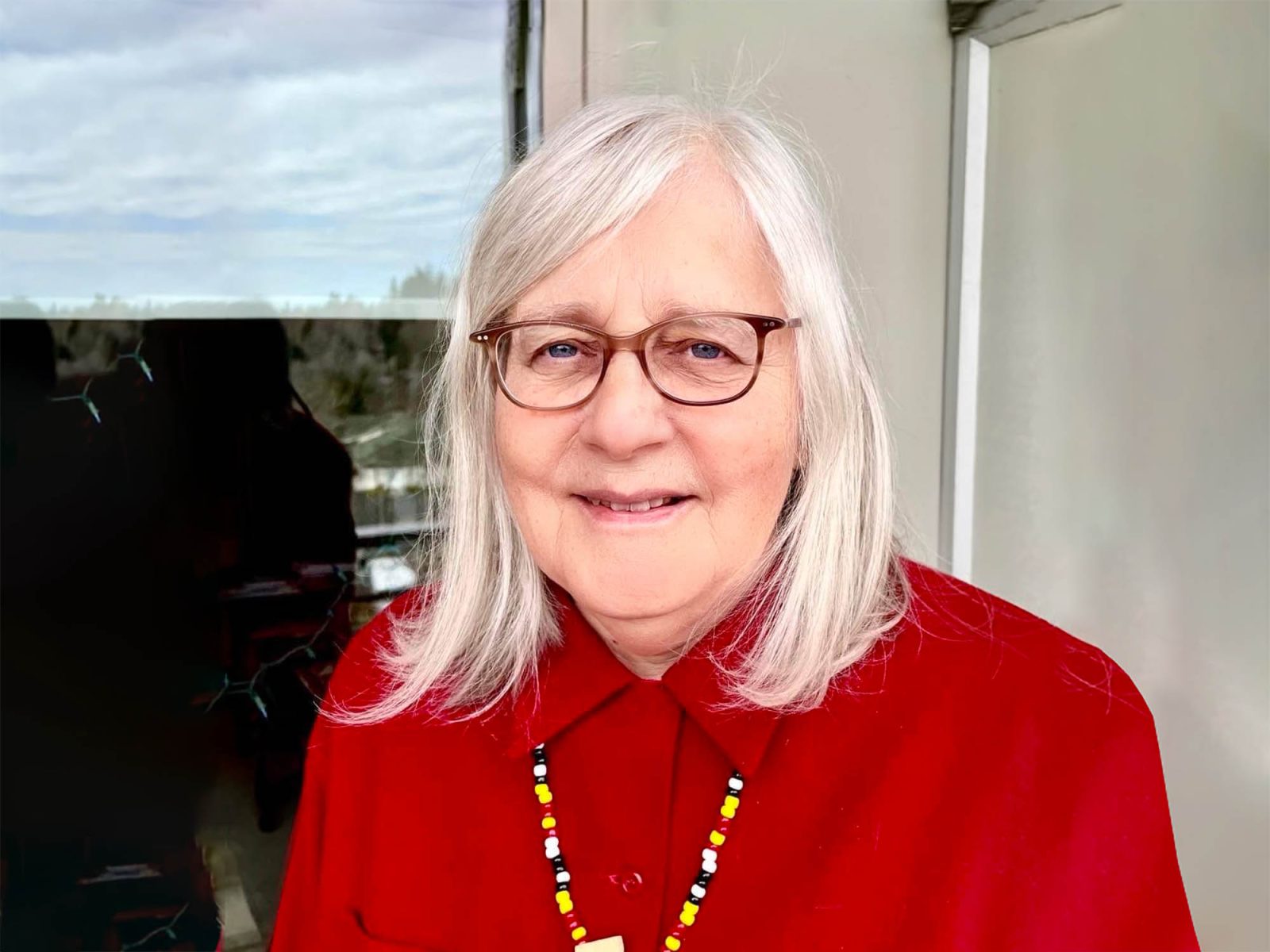
Growing up in Brooklyn’s Ashkenazi community, Janice [Janey] Giteck heard klezmer music and chanting during synagogue, at celebrations, and around her neighborhood. Her family left New York for Tucson when she was 12. She quickly immersed herself in Native American culture, especially when tagging along with her older cousin, an anthropologist who studied local indigenous communities.
“In high school, I became fixated on finding original texts and exploring these cultures,” said Janey, a widely published composer and resident of Wesley Des Moines. “After college, I wrote an opera based on Native American storytelling.”
In 2021, Janey was asked by former Seattle Symphony Orchestra (SSO) musical director Thomas Dausgaard to revive her composition, Potlatch Symphony. She debuted Potlatch Symphony in 2013 as part of The Native Lands Project, a two-year residency with SSO in collaboration with regional Native American tribal nations. The project built understanding and respect through music between the SSO, Seattle community and local indigenous cultures.
“I worked very closely with Swil Kanim, a Lummi Nation violinist, and flutist Paul “Che oke ten” Wagner from the Wsaanich Nation on Vancouver Island,” said Janey. “I’d met these two incredible musicians during the Penn Cove Water Festival on Whidbey Island, where I have kept a home since 2010.”
A composer of international renown, Janey calls her compositional journey a “gift from the universe.” She received her B.A. and M.A. in Composition from Mills College in Oakland, California, where she studied with the esteemed composer Darius Milhaud. At Maestro Milhaud’s urging, she attended the Paris Conservatory under the tutelage of Olivier Messiaen. She then moved to Frankfurt with her husband, John Duykers, the acclaimed opera tenor. After seven years in Frankfurt, she said, “we felt the need for some grounding, so we returned to Oakland.”
She and John were married for 12 years. Their son, Max Giteck Duykers, is a prominent New York-based composer known, like his mother, for “unique forms and collaborative projects.”
Janey credits her Frankfurt years, “where I learned a lot of things,” with unveiling a world of musical possibilities. A student of Tibetan Buddhism, her work is widely lauded for its treatment of social issues. Her impressive repertoire includes Navigating the Light, based on the lives of inmates in the Echo Glen Children’s Center. Her many compositions have been performed worldwide, from China to Costa Rica. In 1981, she was the first woman composer commissioned by the San Francisco Symphony.
To this day, Janey remains active in working with Washington indigenous nations.
“Swil and Paul, who remain my guides for the Potlatch Symphony, have become very dear to me, brainstorming and working together on various projects. We travel with symphony musicians to different tribes to perform and share our cultures. We often have as many as one hundred people and our hosts prepare traditional food to feed everybody. It’s wonderful to see so many people taking notes and taping our sessions to memorialize these outreach events.”
Janey has always embraced the complexities of integrating Western European music and indigenous and spiritual influences. As a music professor at Cornish College for the Arts, her classes often focused on how artists could respond to their social environments. Her work scoring several feature documentaries and a series of films for the environmental learning center IslandWood on Bainbridge Island demonstrates her ability to present complex relationships musically.
“I feel I’ve always been interested in all cultures,” she said. “I studied under Indian guru India Swami Muktananda and, after his passing, followed the teachings of Mayi Chidvilasananda for many years. I became involved with Tibetan Buddhism through the Dali Lama and have spent time in many ashrams and temples, studying and meditating. Meditation has provided me with much-needed solace in recent years.”
Due to the recent administrative changes at Seattle Symphony, Janey is uncertain when the remounted Potlatch Symphony will be performed, though she thinks within the next year. “When Thomas returned to Norway, the schedule became less clear. However, I recently received an email from the SSO education department saying they would like to move forward with the piece.”
Like so much of her work, Potlatch Symphony provides an opportunity to explore cross-cultural relationships in real-time.
“The original performance began when the eight indigenous nations in full regalia paraded down the aisles at Benaroya Hall beating drums,” Giteck says. “The chamber orchestra, already seated in a semi-circle, was surrounded by this procession. A Duwamish Nation elder, who gave the welcoming, acted as master of ceremonies. In addition to Swil Kanim and Paul Wagner, indigenous youth and Cornish students joined the SSO onstage. What followed was a back and forth that included storytelling, dancing and music.”
A pioneer in musical composition that is just right for our present times, Janice Giteck’s reprisal of Potlatch Symphony promises to be one of the cultural events of the coming year in the Seattle area.